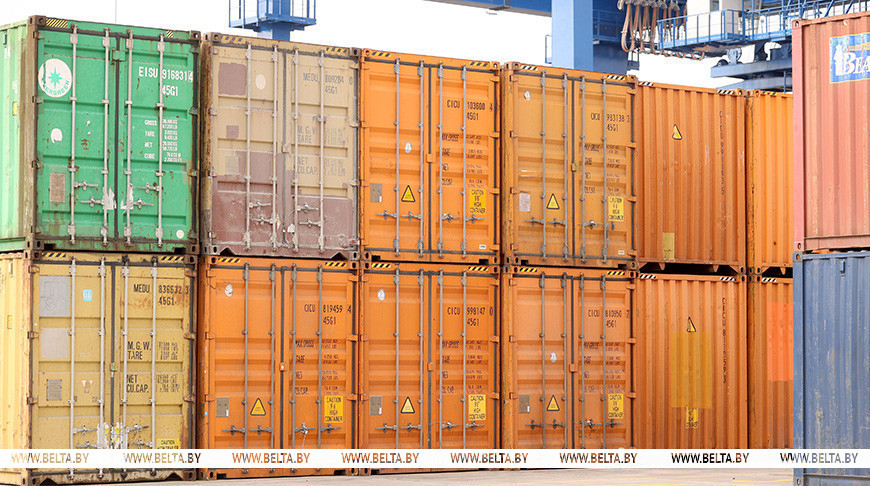
MINSK, 3 August (BelTA) - Valery Verenich, head of Belarusian Railways, spoke about the recent transformation of Belarusian cargo logistics in an interview with BelTA.
The Belarusian Railways network transports over 100 million tonnes of goods annually, handling both domestic shipments and international trade for the country's organizations and industrial enterprises.
“Sanctions-related changes in logistics have served not as a constraint, but rather as a catalyst for exploring new routes. In cooperation with Belarusian businesses, we have developed and implemented transit shipments through Russia, utilizing both seaports and overland routes. At the same time, we maintain the potential of transport-logistics schemes via Baltic ports, particularly for shipments to Russia's Kaliningrad Oblast, as well as through Belarusian-Polish border crossings,” Valery Verenich said.
Belarusian Railways is actively developing alternative logistics corridors, including participation in the Northern Sea Route initiative.
Alongside utilizing Russia's transit potential, the railway has significantly increased freight traffic with Central Asian countries. In January-June 2025, shipments to Turkmenistan grew by 1.2 times, to Tajikistan by 1.3 times, and to Kyrgyzstan by 110% compared to the same period in 2024. The railway is also expanding operations along the North-South Transport Corridor, employing multiple routes: the western route through Azerbaijan, the central route via Caspian Sea ports, the eastern corridor through Turkmenistan (Akyayla border crossing).
Belarusian Railways has successfully organized multimodal shipments along the international transport corridor Belarus-Russia-Kazakhstan-Uzbekistan-Afghanistan-Pakistan. The route involves rail transport from Belarus to Termez-Port station in Uzbekistan, followed by road transport into Afghanistan. Developed logistics schemes now enable road transportation through Afghanistan and Pakistan, with final access to Karachi seaport for subsequent maritime shipments.
“We are strengthening international cooperation with foreign railways through both bilateral and multilateral formats, including within international transport organizations and integration associations. We are developing efficient delivery schemes for Belarusian products to alternative markets,” Valery Verenich said.
Key export commodities (oil products, fertilizers, ferrous metals, timber, etc.) have already been redirected to routes utilizing transport infrastructure of friendly countries. Close cooperation with railways of Russia, China, Kazakhstan, Iran, Azerbaijan, and Turkmenistan has established a stable logistics framework for rail transportation.













